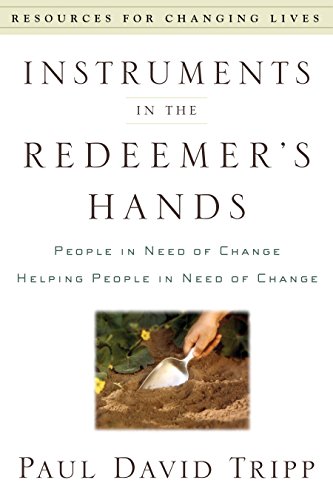Quotes about Discipleship
If you are Christians, be consistent. Be Christians out and out; Christians every hour, in every part. Beware of halfhearted discipleship, of compromise with evil, of conformity to the world, of trying to serve two masters – to walk in two ways, the narrow and the broad, at once. It will not do. Halfhearted Christianity will only dishonor God, while it makes you miserable.
We are constantly on a stretch, if not on a strain, to devise new methods, new plans, new organizations to advance the Church and secure enlargement and efficiency for the gospel. This trend of the day has a tendency to lose sight of the man or sink the man in the plan or organization. God’s plan is to make much of the man, far more of him than of anything else. Men are God’s method. The Church is looking for better methods; God is looking for better men.
Few follow Him for love, but for loaves, John 6:26; few follow Him for His inward excellencies, but many follow Him for their outward advantages; few follow Him that they may be made good by Him, but many follow Him that they may be great by Him.
A Puritan Golden Treasury, compiled by I.D.E. Thomas, by permission of Banner of Truth, Carlisle, PA. 2000, p. 279.
You are to follow no man further than he follows Christ.
A Puritan Golden Treasury, compiled by I.D.E. Thomas, by permission of Banner of Truth, Carlisle, PA. 2000, p. 52.
In his Treatise Concerning Religious Affections, Jonathan Edwards suggested that true growth in Christian discipleship is not finally mere excitement, increasing use of religious language, or a growing knowledge of Scripture. It is not even an evident increase in joy or in love or concern for the church. Even increases in zeal and praise to God and confidence of one’s own faith are not infallible evidences of true Christian growth. What, then, is evidence of true Christian growth? According to Edwards, while all these things may be evidences of true Christian growth, the only certain observable sign of such growth is a life of increasing holiness, rooted in Christian self-denial. The church should be marked by a vital concern for this kind of increasing godliness in the lives of its members.
Nine Marks of a Healthy Church, Crossway, 2000, p. 201. Get this book!
Discipling is deliberately doing spiritual good to someone so that he or she will be more like Christ. Discipleship is the term I use to describe our own following Christ. Discipling is the subset of that, which is helping someone else follow Christ.
Discipling, ©9Marks. Website: www.9Marks.org. Email: [email protected]. Toll Free: (888) 543-1030. Used by Permission. Page 13.
David Wells has observed, “It is very easy to build churches in which seekers congregate; it is very hard to build churches in which biblical faith is maturing into genuine discipleship.”
Discipling, ©9Marks. Website: www.9Marks.org. Email: [email protected]. Toll Free: (888) 543-1030. Used by Permission. Page 19.
Maybe you’ve thought that you really need to be discipled before you can disciple. It is certainly crucial to be a disciple. But Jesus gave the command to make disciples to you. And part of being a disciple, in fact, is to disciple. Part of growing in maturity is helping others grow in maturity. God wants you to be in churches not merely so that your needs are met, but so that you will be equipped and encouraged to care for others.
Discipling, ©9Marks. Website: www.9Marks.org. Email: [email protected]. Toll Free: (888) 543-1030. Used by Permission. Page 20.
The work of discipling occurs in the present, but it has its eyes set on the Last Day. It requires long-term thinking. It requires an investor’s mentality, knowing that the return is eternal. And the investment occurs through God’s Word. We must proclaim God’s Word is the seed that ultimately bears fruit, even if we don’t see it in the short term…trust that God’s Word does not return void. You will see the harvest later.
Discipling, ©9Marks. Website: www.9Marks.org. Email: [email protected]. Toll Free: (888) 543-1030. Used by Permission. Page 32-33.
Discipling others now is how I try to leave time-bombs of grace.
Discipling, ©9Marks. Website: www.9Marks.org. Email: [email protected]. Toll Free: (888) 543-1030. Used by Permission. Page 34.
A disciple is one who disciples. He proclaims now so that he might present later.
Discipling, ©9Marks. Website: www.9Marks.org. Email: [email protected]. Toll Free: (888) 543-1030. Used by Permission. Page 34.
Pastors teaching the Word is the core of a church’s discipling ministry. It provides the food and water that feeds all the other discipling relationships within the church.
Discipling, ©9Marks. Website: www.9Marks.org. Email: [email protected]. Toll Free: (888) 543-1030. Used by Permission. Page 60.
Churches don’t need programs so much as they need cultures of discipling, cultures where each member prioritizes the spiritual health of others.
Discipling, ©9Marks. Website: www.9Marks.org. Email: [email protected]. Toll Free: (888) 543-1030. Used by Permission. Page 68.
Discipling means helping others follow Jesus. Discipling is a relationship in which we seek to do spiritual good for someone by initiating, teaching, correcting, modeling, loving, humbling ourselves, counseling, and influencing.
Discipling, ©9Marks. Website: www.9Marks.org. Email: [email protected]. Toll Free: (888) 543-1030. Used by Permission. Page 74.
Have you ever heard of the life – truth – life pattern? Your life should attract people to listen to you; your teaching should then work for their transformation; their transformed lives should then illustrate what you taught, which in turn attracts people to listen to them.
Discipling, ©9Marks. Website: www.9Marks.org. Email: [email protected]. Toll Free: (888) 543-1030. Used by Permission. Page 84.
So much of discipling is doing what you ordinarily do but bringing people along with you and having meaningful conversations like Jesus did.
Discipling, ©9Marks. Website: www.9Marks.org. Email: [email protected]. Toll Free: (888) 543-1030. Used by Permission. Page 85.
So many times I’ve seen men, particularly younger guys, act as if real leadership is shown in correcting others. That’s why young men’s sermons often scold. What they haven’t figured out is that you can often accomplish more by encouragement. There are times to scold. But 80 to 90 percent of what you hope to correct can be accomplished through encouragement. If you look back at your life and consider who influenced you the most, you will probably find that it’s the people who believed in you.
Trials expose what our hearts truly trust in, and what our hopes are. Time passing in a fallen world always brings trials. Trials are key times in discipling relationships, whether the trail is in the life of the one discipling or the one being disciple.
Discipling, ©9Marks. Website: www.9Marks.org. Email: [email protected]. Toll Free: (888) 543-1030. Used by Permission. Page 88.
Really, the “how” of discipling is not that complicated. It’s about doing life together with other people as you all journey toward Christ. We make friends and then walk them in a Christward direction.
Discipling, ©9Marks. Website: www.9Marks.org. Email: [email protected]. Toll Free: (888) 543-1030. Used by Permission. Page 86.
1. Make the Word of God central. 2. Make ongoing Gospel living central. 3. Make clear the corporate implications of repentance and faith in genuine life-on-life relationships. 4. Draw a line between covenanted members and nonmembers. 5. Have a shared burden among the elders to model discipleship. 6. Have regular congregation times when God’s work of discipleship is publicly shared and celebrated. 7. Pray openly and regularly for God to create a culture of discipleship. 8. Add application to sermons about biblically caring for one another. 9. Realize the importance of the congregation to be together. 10. Pray for humility. 11. Promote good books that help make disciples and train disciplers. 12. Have conversations that are spiritually enriching. 13. Discourage rigid rules and formal discipling systems. 14. Avoid people having an over dependency on one person. 15. Avoid discipling people from the opposite gender, but encourage discipleship relationships that cross age and race. 16. Avoid making discipleship a specific ministry as compared to having it permeate the culture both within and outside of the church.
The one indispensable requirement for producing godly, mature Christians is godly, mature Christians.
Jesus does not hide His extreme requirements in the fine print but proclaims them boldly in headlines… Faithful discipleship that will stick it out to the end does not rest on a momentary burst of feeling. Enthusiasm may wane as quickly as it blazes up.
Paul presented this "older woman (teaching) younger woman" model as one of the greatest teaching opportunities mature Christian women can have in the church. They carefully share wisdom out of their years of experience, something even mature men have no capacity to do. Furthermore, these mature women can do what men should not do in a personal setting – to communicate with women regarding very intimate matters. It’s obvious Timothy faced this challenge in Ephesus when Paul exhorted him – particularly as a young single man – to "treat…older women as mothers, and younger woman as sisters, with absolute purity" (1 Ti. 5:1-2).
Elders and Leaders, Moody, 2003, p. 118. Get this book!
Discipleship is going from “mission field” to “missionary.”
As David Platt says, the goal is not to disinfect Christians and separate them from the world but to disciple them and send them back into the world.
Gaining by Losing, Zondervan, 2015, p. 150.|Gaining by Losing, Zondervan, 2015, p. 150.
The good news is that making disciples is fairly easy. You simply bring people along in your spiritual journey. Making disciples is more about intentionality than technique: Discipleship means teaching others to read the Bible the way you read it, pray the way you pray, and tell people about Jesus the way you do. If you have Christian habits in your life worth imitating, you can be a disciple-maker. It doesn’t require years of training. You just teach others to follow Christ as you follow Him.
There are no churchless disciples.
Doing His Word by Kent Hughes taken from Luke by Kent Hughes – Volume 1, copyright 1998, Crossway Books, a division of Good News Publishers, Wheaton Illinois 60187, www.crosswaybooks.org, page 248.
Most Christians believe that men are indeed the method of Jesus, but precious few are willing to invest their lives by putting all their eggs in one basket. Believing this people-orientated philosophy and practicing it are entirely different matters. A large problem in Christendom is that we don’t want to take the risk or the time to invest in the lives of people, even though this was a fundamental part of Jesus’ ministry. We fear, that the basket is really a trap to ensnare us.
There are many willful, wayward, indifferent, self-interested Christians who cannot really be classified as followers of Christ. There are relatively few diligent disciples who forsake all to follow the Master.
A Shepherd Looks at Psalm 23, Permission by Zondervan, www.zondervan.com. 1970, p. 67. Get this book!
A life of resolve comes with a price tag. You will be tested by the lure of the world. But you must turn a deaf ear to the crowd and live instead for the approbation of Christ. There will always be a cross before a crown, sacrifice before success, and reproach before a reward. The call of discipleship will cost you popularity, possessions, and position. But God will use your commitment. The grace of God will be multiplied in you if you cultivate a fixed resolution to live for the glory of God.
The Unwavering Resolve of Jonathan Edwards (www.ligonier.org/store/the-unwavering-resolve-of-jonathan-edwards-hardcover), Copyright 2008 by Steven Lawson, Ligonier Ministries (www.ligonier.org). Page 75.
As Christians, I challenge you. Have a great aim. Have a high standard. Make Jesus your ideal…make Him an ideal not merely to be admired but also to be followed.
Discipling someone is walking them through life and teaching them to perceive all of its experiences with a divine insight. That’s what discipleship is. It’s not a class on Thursday night, or any other night. It’s not two hours of reading a book. It’s interpreting life with the mind of Christ.
A Mission of Mercy. The article originally appeared (https://www.gty.org/library/sermons-library/42-132/a-mission-of-mercy) at www.gty.org. © 1969-2008. Grace to You. All rights reserved. Used by Permission.
Jesus is not offering a makeover. He’s calling for a takeover, very different from the easy kind of Christianity light that we’re so familiar with.
The Extreme Nature of True Discipleship – Part 2. The sermon originally appeared (https://www.gty.org/library/sermons-library/42-196/the-extreme-nature-of-true-discipleship-part-2) at www.gty.org. © 1969-2008. Grace to You. All rights reserved. Used by Permission.
Jesus spent over three years with His twelve disciples. He called them to be discipled at the outset of His ministry (Matt. 4:19), and He gave them the lion’s share of His life until His departure in Matthew 28. He invested His life in His men. It is amazing to track in the Gospels how much Jesus gave of Himself to His disciples. The crowds pursued Him, but He pursued His disciples. He was willing to bless the masses, but He invested in the few.
Missions by David Mathis taken from Don’t Call it a Comeback, edited by Kevin DeYoung, copyright 2011, Crossway Books, a division of Good News Publishers, Wheaton Illinois 60187, www.crosswaybooks.org, p. 229.
Discipling others is the process by which a Christian with a life worth emulating commits himself for an extended period of time to a few individuals who have been won to Christ, the purpose being to aid and guide their growth and maturity, and equip them to reproduce themselves in a third spiritual generation (Allen Hadidian).
[Discipleship] is not merely another commitment which we add to the long list of our other commitments, but it is the commitment – demanding a reordering of our lives from the bottom up (Robert C. Tannehill).
From The Sword of His Mouth by Robert C. Tannehill copyright © 1975, Fortress, p. 159. Used by Permission.
When we don’t find positive mentors, by default, negative ones actually find us (Lynn Anderson)!
Good equippers do it like Jesus did it; recruit twelve, graduate eleven, and focus on three (Lynn Anderson).
They Smell Like Sheep, Howard, 1997, p. 88. Used by Permission.|They Smell Like Sheep, Howard, 1997, p. 88. Used by Permission.
Disciples forsake the world and cling to Jesus ’till he comes. Converts don’t. Disciples aren’t engaged in a culture war. Converts are. Disciples cherish, obey, and share the word of God. Converts don’t. Disciples choose Jesus over anything and everything else. Converts don’t. Converts run when the fire comes. Disciples don’t (Unknown Iranian Church Leader).
Find someone who knows more than you and learn from that person. And find someone who needs what you know and teach that person. Every Christian is a student; every Christian is a teacher (Grady Jolly).
Quoted in: Lynn Anderson, They Smell Like Sheep, Howard, 1997, p. 94. Used by Permission.
Jesus Christ demands self-denial, that is, self-negation (Matt. 16:24; Mark 8:34; Luke 9:23), as a necessary condition of discipleship. Self-denial is a summons to submit to the authority of God as Father and of Jesus as Lord and to declare lifelong war on one’s instinctive egoism. What is to be negated is not personal self or one’s existence as a rational and responsible human being. Jesus does not plan to turn us into zombies, nor does he ask us to volunteer for a robot role. The required denial is of carnal self, the egocentric, self-deifying urge with which we were born and which dominates us so ruinously in our natural state. Jesus links self-denial with cross-bearing. Cross-bearing is far more than enduring this or that hardship. Carrying one’s cross in Jesus’ day, as we learn from the story of Jesus’ own crucifixion, was required of those whom society had condemned, whose rights were forfeit, and who were now being led out to their execution. The cross they carried was the instrument of death. Jesus represents discipleship as a matter of following him, and following him as based on taking up one’s cross in self-negation. Carnal self would never consent to cast us in such a role. "When Christ calls a man, he bids him come and die," wrote Dietrich Bonhoeffer. Bonhoeffer was right: Accepting death to everything that carnal self wants to possess is what Christ’s summons to self-denial was all about.
It is impossible to be a follower of Christ while denying, disregarding, discrediting and disbelieving the words of Christ.
Taken from Counter Culture, Copyright © 2015 by David Platt. Used by permission. Website: Radical.net. Page 17.
Choosing the cross over comfort is a requirement for following Christ [Lk. 9:23].
Taken from Counter Culture, Copyright © 2015 by David Platt. Used by permission. Website: Radical.net. Page 239.
[I can imagine Paul saying,] “Within the scope of the test of apostleship, what counts is not my doctrine or my orthodoxy, or my connections, but that my heart and life bear the brand of the cross: it has cost me something to follow Jesus.”
Let us note that our Lord does not name gifts or miracles or intellectual attainments as the evidence of discipleship, but love, the simple grace of love, a grace within reach of the poorest, lowliest believer, as the evidence of discipleship. If we have no love, we have no grace, no regeneration, no true Christianity!
[Discipleship] training cannot be done on a mass scale. It requires patient, careful instruction and prayerful, personal guidance over a considerable time. Disciples are not manufactured wholesale. They are produced only one by one, because someone has taken the pains to disciple, to instruct and enlighten, to nurture and train one that is younger.
Spiritual Leadership, Moody Publishers, 1967, p. 150. Get this book!
Our goal is not to get comfortable with the pleasures of this world. Our goal is not to fix all the problems in America. Our goal is to understand that heaven is our home and as a pilgrim here on earth, our pursuit is to be a growing disciple that helps others become a disciple and then helps them be a growing disciple as well who are equipped to make more disciples.
Sermon, Purposefully Misplaced in Babylon – part 2, Revelation 14:1-20, February 21, 2015.
Coming to Christ means I die to self. It’s allowing Christ to reign as Lord in my heart and desiring to see Him live His will through me. It’s death to the relentless but never-satisfying quest for affirmation. It’s freedom from the vain need to promote self. It’s separation from fight to find personal worth and identity. Fighting less for my rights. Decreasing so He increases in me. It’s finding approval in Him and realizing the true fulfillment in living for His glory. Death to self so life might live within us. When the pride goes so does the selfish agendas and the traits like the bitterness, the jealousy, the unforgiving spirits, the critical attitudes. Christ reigns resulting in joy and peace. Eyes are opened to new horizons. Curse is reversed. Life is restored.
What are some traits that mark an Olympian? 1. They have a “whatever-it-takes” attitude. They’ve made the decision to pay any price and bear any burden in the name of victory. 2. They have a plan to push forward when they encounter obstacles. They know facing adversity is part of being successful. 3. They have strict accountability. 4. They consider “very good” (or worse, “good enough”) to be “bad.” They are driven to perform at an elite level. 5. They set high goals for themselves. Motivation is keeping your eyes on the goal. 6. They are humble to know others can provide advice to make them better. 7. Levels of priorities are set and their life stays in-tune with those priorities. The same single-minded devotion expected from an Olympian is the same single-minded devotion our Savior expects from His followers. Yes, the fruit of sacrifice and self-denial will be different. Yes, the goals and rewards are different. And yes, the source of strength is different. However, the traits that mark an Olympian that I mentioned earlier could also apply to the traits that mark a disciple of Jesus Christ. If anything, we should be more motivated (see 1 Cor. 9:24-27a).
It’s said people today will not settle for a no-nonsense approach to discipleship. Maybe the church has failed because don’t trust our Lord’s words and don’t talk this way enough. Maybe this is what people really want. It is not some superficial religion with emotional ecstasy or countless man-made rules or trite worship. Where is the fulfillment in more of the world with an outward veneer of religion? The world can provide that better than us. That does not meet the human soul in its desperate condition for true satisfaction that only comes from a confrontation with the living God.
It seems so many in the church today want to talk about their experience. True disciples should be talking more about their commitment.
Since we can’t see Jesus for the day-to-day living, God has provided in our lives godly men and women whom we can watch, question and follow within the church. Let’s remember, this is a team race. We need examples to imitate. Mavericks in the church only hurt themselves and others. To say you don’t need human examples is prideful and clearly unbiblical (1 Cor. 4:16; 1:11; Phil. 3:17; 4:9; Heb. 13:7; 1 Pet. 5:2).
A disciple is literally a follower, a pupil, a learner, an apprentice. He is one who has dedicated not only to follow his master but also to become like Him.
Growing a Healthy Church, Moody, 1991, p. 18. Get this book!
A true discipling ministry will include every aspect of winning people to the Savior, building them up in their faith, and equipping them to win and build others.
Growing a Healthy Church, Moody, 1991, p. 18. Get this book!
We never grow too old to be mentored or to be a mentor. We can look upon ourselves as middlemen. We should place ourselves under someone wiser and more knowledgeable than ourselves in order to learn from them, then be looking for those to whom we can transmit what we have learned. The torch must be passed continuously from one generation to the next.
Practical Wisdom for Pastors, Crossway Books, 2001, p. 173. Used by Permission. Get this book!
We cannot make up for failure in our devotional life by redoubling energy in service. We shall never take people beyond our own spiritual attainment.
Soul winning should lead to soul building.
Vision is our dominant sense. A report published by the Xerox Corporation years ago revealed that 83 percent of what we learn comes through our sight. Hearing provides for 11 percent of what we learn, compared with extremely small percentages from the other three senses: smell, 3.5 percent; touch, 1.5 percent; and taste, 1 percent. No wonder Jesus used visuals!…( Most importantly) Jesus very life was a visual, reinforcing what He taught.
Recommended Books

Instruments in the Redeemer’s Hands: People in Need of Change Helping People in Need of Change
Paul David Tripp





























